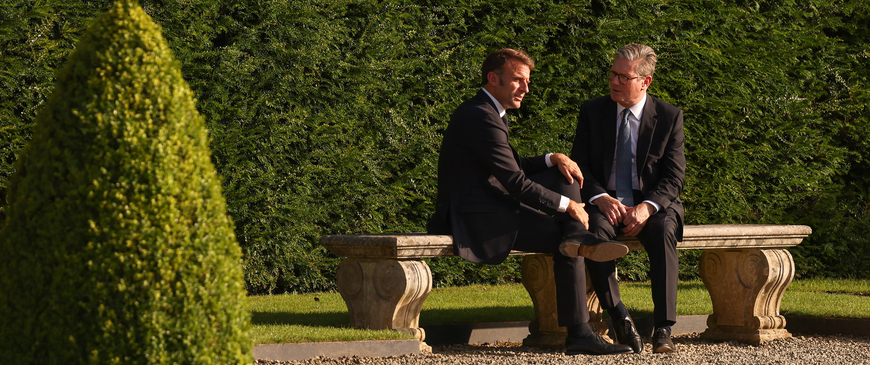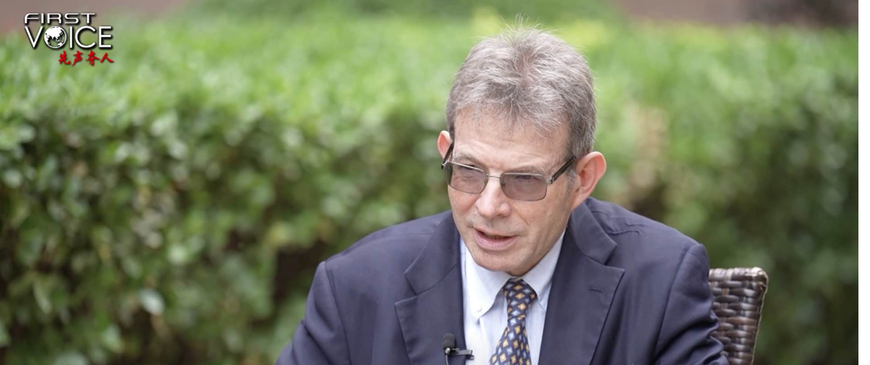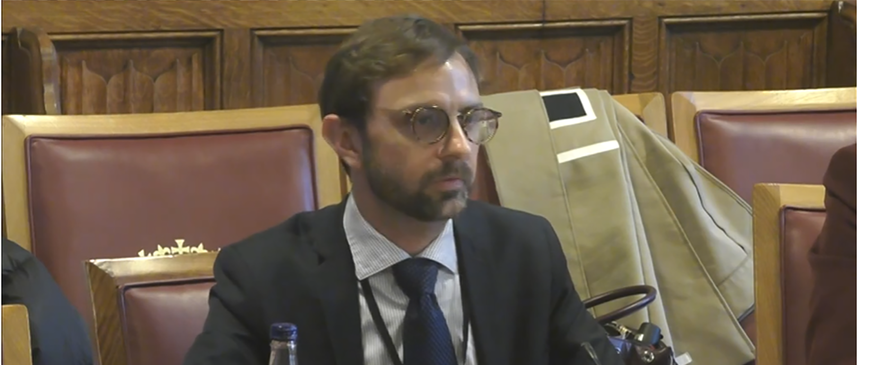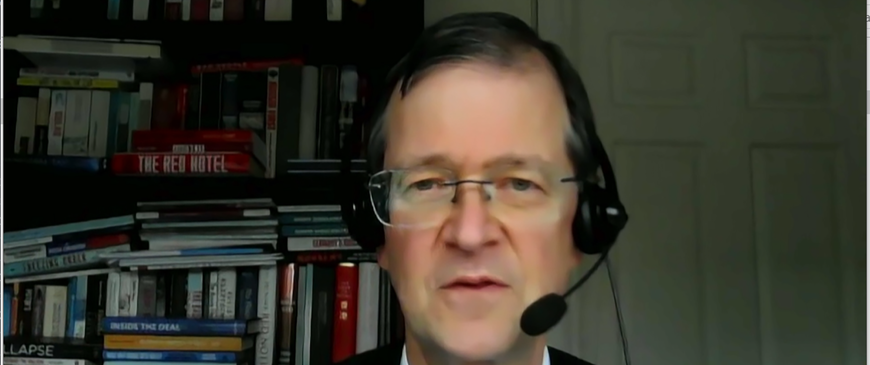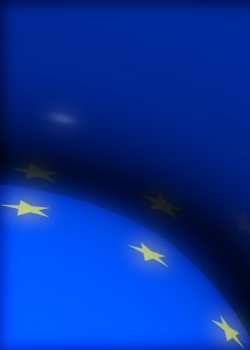Press
Europe's choice: growth or safety net
25 March 2010
The Wall Street Journal
"The euro was supposed to achieve higher productivity and growth by bringing about a deeper integration between economies," says Simon Tilford, chief economist at the Centre for European Reform, a London think-tank. "Instead, integration is slowing. The lack of flexibility in labour and product markets raises serious questions about the likelihood of the euro delivering on its potential."
Bailout showdown: Greece and Germany raise the stakes
24 March 2010
Time
Simon Tilford, chief economist at the London based Centre for European Reform think-tank, says Merkel's brinkmanship is understandable given the political risks of Germany's conceding too soon but that she cannot hold out indefinitely. "It is implausible that Greece could get through the rest of this year unaided," he says. "Ultimately, the Germans will put something on the table. They will always defend the stability of the euro."
Sarkozy cannot fall out with Merkel
24 March 2010
Financial Times
As Charles Grant, of the London based Centre for European Reform, points out, there have been crunch moments before that have prevented the bloc from moving forward. This is one that could send it careering backwards.
Europe looks at IMF with unease as Greece struggles
24 March 2010
New York Times
"The sums involved are quite large, and no one knows quite how much of that gap the IMF can fill," said Philip Whyte, an economist at the Centre for European Reform in London. "Even 10 or 11 billion euros would be a big help," he said, but it would need to be supplemented by some form of European loan, bilateral or collective, particularly with Greece needing to roll over an additional $44 billion later this year.
Merkel hailed as EU 'victor' in Greece crisis
24 March 2010
EU Business
"I am not hugely optimistic," Simon Tilford from the London based think-tank Centre for European Reform told AFP. "They might manage to finesse it to make it look like there has been an agreement ... But with a bit more scrutiny it will become apparent that we haven't made a whole lot of progress. "There will be some kind of deal announced, and it will be some sort of hybrid, but the terms attached to the granting of any bilateral loans will be unrealistic."
EU eyes aid deal that satisfies Merkel and Greece
23 March 2010
Reuters
"Greece has to roll over a lot of money in April and May. It might manage to do that but the idea that it could get through the rest of this year unaided is pretty implausible," said Simon Tilford of the Centre for European Reform think-tank. "There is pressure now to agree to something at the summit but it has to be something that Germany can accept and also prevents Greece going (directly) to the IMF. It will be hard."
Číne a Amerike musíme ísť príkladom
22 March 2010
SME.sk
Svet po kríze už bude iný, nebude v ňom vládnuť samotná Amerika, novú koncepciu musí prijať aj NATO, hovorí svetovo uznávaný bezpečnostný analytik TOMÁŠ VALÁŠEK.
Greek debt crisis merely adds to the list of issues dividing the European Union
21 March 2010
The Washington Post
"The creation and enlargement of the EU was one of Europe's biggest achievements, but now its inability to speak as one, and its failure to agree on how to tackle its underlying economic and social challenges, is undermining Europe's standing and potentially leading it into a period of decline," said Simon Tilford, chief economist at the Centre for European Reform, a London-based think-tank.
Germany: Responsible for Europe's crisis?
19 March 2010
Global Post
"Germans think they have been prudent, they say that Greeks and others should take a leaf out of their book," said Simon Tilford of the Centre for European Reform in London. "They are nonplussed when others don't buy into it. But, it's almost impossible to get the economy growing unless you get exports to Germany."
Euro laggards risk stagnation, deflation
18 March 2010
CNBC
The CER's Charles Grant told reporters that the countries ignored advice from the European Union's executive to overhaul their economies by making labour markets more flexible and knocking down barriers that protect some businesses or sectors from rivalry. If the four nations had been "better pupils and swallowed the medicine, they wouldn't be in the trouble they are today," Grant said.
Greece to seek details on loans from Europe
18 March 2010
New York Times
Simon Tilford, chief economist at the Centre for European Reform, said that the euro zone leaders had "done enough to reassure the markets for a little while," but that "they are going to have to clarify things at some point. The idea that the crisis has been overcome is wishful thinking."
Merkel floats option of euro zone expulsion
18 March 2010
The Wall Street Journal
"I don't see such a treaty change ever being agreed," said Simon Tilford, chief economist at the Centre for European Reform, a London think-tank. "Other member states will not accede to this in the absence of any recognition on the part of the Germans that they will need to amend their economic strategy if the stability of the euro zone is not to be compromised."
European fight won't be Conservative priority
17 March 2010
Reuters
"They will believe the economy is their priority. They won't want Europe as an issue to distract energy and attention and time," said Charles Grant, director of the Centre for European Reform think-tank.
'Sinister' German spy plan aimed at Hedge Funds, analysts say
17 March 2010
Bloomberg Business Week
"I find it sinister and silly, it is a complete overreaction," said Philip Whyte of the Centre for European Reform, a pro-European Union research institute in London. "There is a certain school of thought in continental Europe that everything is always the fault of hedge funds." Schaeuble's comments reflected "a longstanding paranoia about the Anglo-Saxon model of capitalism."
Baroness Ashton faces first big international test with Middle East trip
15 March 2010
The Times
"She will not solve the peace process on her first flying visit," said Hugo Brady, of the Centre for European Reform. "The full glare of the international media is on her now to see if she will make any mistakes but she simply has to show that she is an engaged player and not create a vacuum for criticism to flow into. The EU has yet to realise its full potential for influence in that part of the world and it should have some extra weight for all the money it is pouring in."
An interview with Nick Clegg
11 March 2010
The Economist
It has gone really surprisingly well, for the simple reason that it is so relentlessly targeted on this perennial problem that has bedevilled British education for so long for generations, which is the link between social deprivation and educational underperformance, a link which is pretty well stronger than almost anywhere else in Europe. I would like to think people also recognise this is not something I have just alighted on out of nowhere; I first wrote or co-authored a pamphlet about this for the Centre for European Reform. … some nine years ago.
EU prepares in case Greek woes spread to Spain
11 March 2010
Reuters
"Unless we see more focus on growth and a less obsessive focus on stability, I think there will be trouble. You are not going to have stability without growth," said Simon Tilford of the London-based Centre for European Reform think tank. "It will be hard to get Spanish people to acquiesce to austerity measures. It's going to be a tough sell."
Greece seeks US help regulating speculators
09 March 2010
The Washington Post
"The concern over speculation is obscuring the underlying issue that Greece and other nations have very precarious fiscal positions," said Simon Tilford, chief economist at the Centre for European Reform.
EU-ECB lock horns over IMF-style rescue fund
08 March 2010
Reuters
"If the fund marks the start of recognition that there needs to be further political integration, then great. If it doesn't, all it will be is sticking plaster", said Simon Tilford, an analyst at the London-based Centre for European Reform.
Europe's superpower hopes dim
08 March 2010
Newsweek
The simple truth is that the Lisbon Treaty can't re-create the EU as a superpower. Says Hugo Brady of the Centre for European Reform, a London-based think tank: "It is not personality that denotes power: it is money, guns, political will, and diplomatic influence. When the EU can deploy those efficiently, then other countries will sit up and listen."

